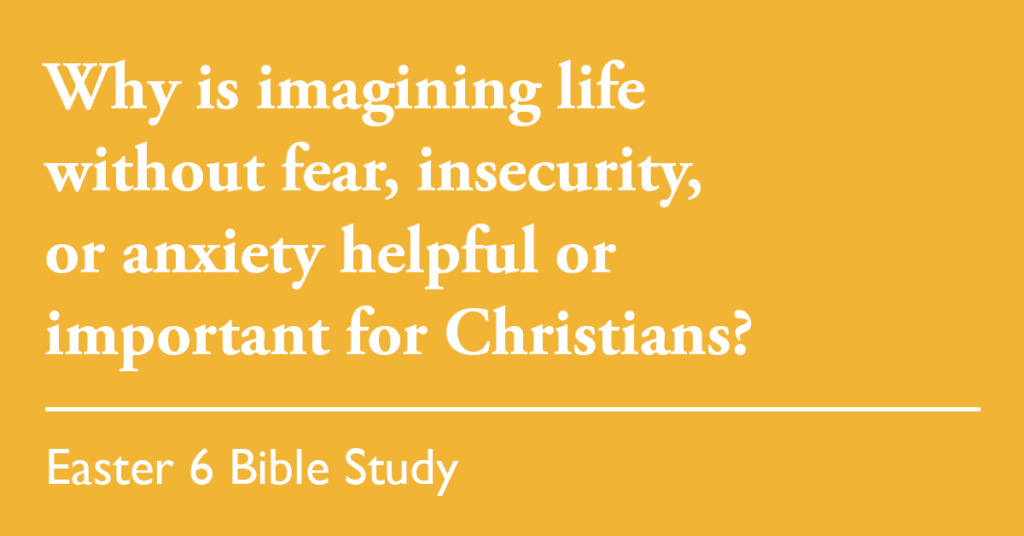This page is available in: Español
Bible Study: Easter 6 (C) – 2022
May 22, 2022
RCL: Acts 16:9-15; Psalm 67; Revelation 21:10, 22-22:5; John 14:23-29 or John 5:1-9

Acts 16:9-15
Throughout the Acts of the Apostles, Paul and his crew are directed where to go in many different ways. Just before this passage, the apostles are “forbidden by the Holy Spirit to speak the word in Asia” and “the Spirit of Jesus” does not “allow them” to go into Bithynia (Acts 16:6-7). But in this passage, Paul receives positive direction in two different ways: through a vision of a man and an invitation of a woman. In their mission work, the early followers of Jesus must remain just as open to indirect messages about where they are not to go as they are to specific affirmations of where they are welcome.
- When has it been easier for you to hear warnings about where not to go and what not to do? When has it been easier to hear positive guidance? In what different ways has God offered you direction in your life?
- She urged us, saying, “…come and stay at my home.” What invitation in your life are you having difficulty being open to? Is it from someone you do not expect?
Psalm 67
We read the word “all” five times in this short Psalm: “all nations” (twice), “all the peoples” (twice), and “all the ends of the earth” (once). Unlike in other parts of Scripture, God’s inclusiveness is unmistakable in this psalm. Over and over again, God’s all-encompassing love expands beyond the limits of the psalmist’s imagination. The reference to “the ends of the earth” reminds us that the globalization and circumnavigation of our day were inconceivable at that time.
- In what ways might our own imaginations be limited by our concepts of space, time, and global realities? How does God’s love extend beyond even those?
- When all the peoples praise God, do they praise God in the same way or differently? How does our understanding of universality intersect with our notions of diversity and particularity?
Revelation 21:10, 22-22:5
The vision of St. John of the new Jerusalem in these verses is quite beautiful, and echoes Psalm 67: “the leaves of the tree are for the healing of the nations.” The lack of night in this new city means the gates of the city will never be shut. In this, we know that there is no longer anything for its inhabitants to fear. Given how intrinsic fear, insecurity, and anxiety are to modern life, it is hard to imagine life without them motivating our habits and choices. What would a lack of fear, insecurity, and anxiety look like in your life and in the life of the Church?
- What is missing from St. John’s description of the new city? What other aspects of life in the new heaven and new earth do you long for?
- Why is imagining life without fear, insecurity, or anxiety helpful or important for Christians? What can it enable or open us to?
John 14:23-29
In the joy of the Easter season, it is sometimes easy to forget that Jesus will leave the disciples again at the end of the fifty days. Even as we celebrate Jesus’ resurrection from the dead, we know that the disciples will need to let go of the incarnated friend they have known. In this passage from before the Passion, Jesus reminds his disciples that he will not leave them on their own, but will give them the Holy Spirit to be with them. Jesus also teaches his disciples that part of loving him is letting him go back to the Father.
- Has anyone ever said to you, “If you love/d me, then you would…”? Have you ever said that to anyone? Was it helpful or hurtful? Why does Jesus say it now?
- Why is the Holy Spirit called the Advocate (Other translations include: Comforter, Helper, Friend, Intercessor, Strengthener)? What are other names for the Holy Spirit and what do they offer to you?
This page is available in: Español
Don’t forget to subscribe to the Sermons That Work podcast to hear this sermon and more on your favorite podcasting app! Recordings are released the Thursday before each liturgical date.
Receive Free Weekly Sermons That Work Resources!
This page is available in: Español


